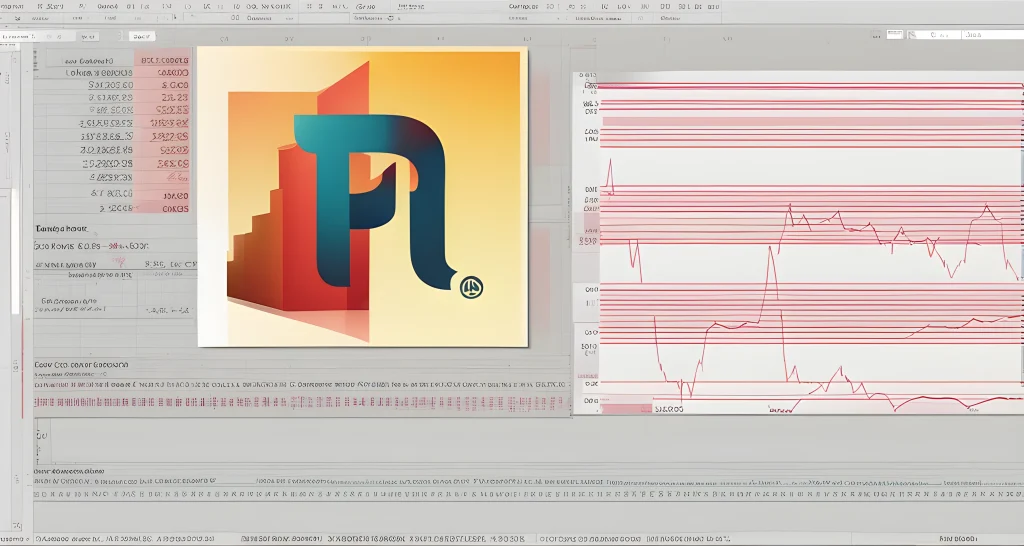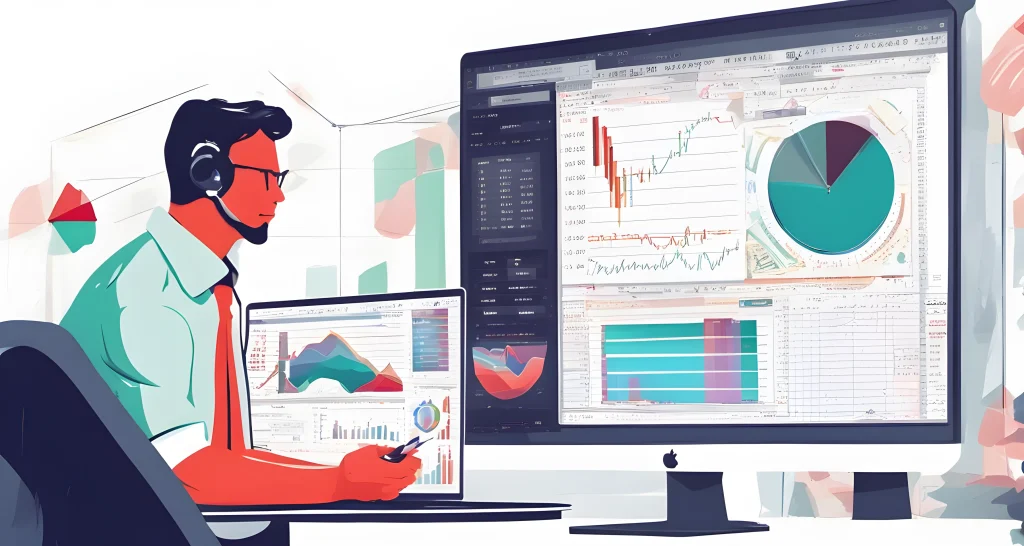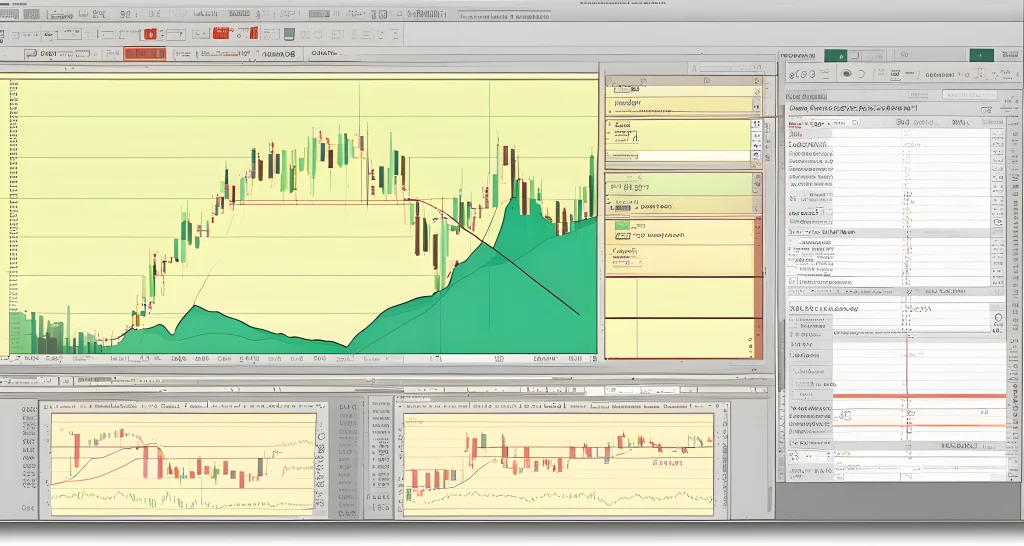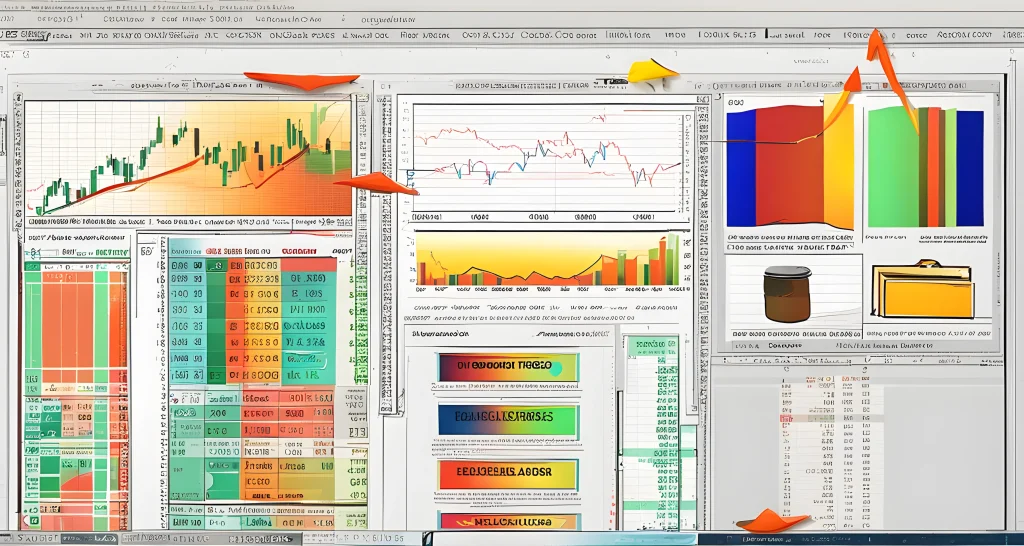1. Open a Trading Account
When opening a trading account, it’s important to choose a broker that fits your needs. Look for a broker that offers tools, features, and an interface that align with your trading style and knowledge. Consider factors such as fee structures, on-the-go accessibility, stock analysis tools, and educational resources. Take the time to research and compare different brokers to find the best fit for you.
To get started, check out the Making a Profit for Newbies article which provides a comprehensive guide on how to open a trading account and start earning money through trading. It covers the key steps to take when opening a trading account, including choosing the right broker, understanding fees and charges, and ensuring accessibility and educational resources.
Ensure that the broker you choose offers a user-friendly platform that allows for seamless trading experiences. Look for features such as real-time market data, customizable charts, and order placement options. Additionally, consider on-the-go accessibility through mobile apps or responsive websites to ensure that you can trade anytime and anywhere.
Educational resources are also crucial for beginners in trading. Look for brokers that offer stock analysis tools, market research reports, and educational materials to help you make informed trading decisions.
By taking the time to choose the right broker and open a suitable trading account, you can set yourself up for success in the world of trading. Make sure to align the broker’s offerings with your trading style and knowledge level to maximize your potential for earning money through trading.

2. Set Your Budget
Setting a budget for trading is crucial. Allocate a portion of your investment budget for trading, but be sure to avoid touching funds that you might need for short-term expenses like mortgage payments or emergencies. It’s important to separate your trading funds from your everyday expenses and to have a clear budget in mind before starting to trade.
Importance of Setting a Budget
Before you start trading, it’s important to set a budget that you can afford to invest without impacting your daily life. This means allocating a specific amount of money that you are comfortable with potentially losing. It’s crucial to avoid dipping into funds earmarked for essential expenses, as this can lead to financial strain if the trading doesn’t go as planned.
Keeping Your Budget Separate
To effectively manage your trading funds, it’s essential to keep them separate from your regular income and expenses. This separation ensures that you can easily track your trading performance and prevents any potential mix-ups with your personal finances.
Avoiding Short-Term Needs
When setting your budget, be mindful of any short-term financial needs that may arise, such as mortgage payments, medical emergencies, or other essential expenses. It’s important to prioritize these over trading funds and only allocate disposable income for trading purposes.
By setting a clear budget for trading and prioritizing your financial responsibilities, you can approach trading with confidence and reduce the risk of financial strain. For more insights on maximizing your earnings in cryptocurrency, check out our article on Increasing earnings in cryptocurrency.

3. Learn the Basics of Stock Analysis
Understanding the basics of stock analysis is essential for successful trading. There are two main methods of stock analysis: technical and fundamental.
Technical Analysis
Technical analysis involves making decisions based on stock price and historical market data. Traders who use technical analysis rely on charts and patterns to predict future price movements. By identifying trends and patterns, they aim to make informed decisions about when to buy or sell stocks. To learn more about technical analysis, check out Secrets to Earning on Telegram for expert tips and strategies.
Fundamental Analysis
On the other hand, fundamental analysis evaluates a company’s true worth by analyzing its financial statements, management team, industry position, and economic indicators. This method focuses on the overall health and performance of a company rather than just stock price movements. Understanding fundamental analysis is crucial for investors looking to make long-term investment decisions.
It’s important to take the time to learn and understand both forms of analysis. By combining technical and fundamental analysis, traders can make well-informed decisions that can lead to successful trading outcomes. Whether you’re a beginner or an experienced trader, mastering the basics of stock analysis is key to maximizing your earning potential in the stock market.

4. Practice with a Stock Market Simulator
If you’re new to trading, or even if you’re an experienced trader looking to refine your skills, utilizing a stock market simulator can be an invaluable tool. By using virtual trading, you can test your skills without risking real money. This allows you to practice and improve your analytical skills in a low-stakes environment, giving you the confidence and experience needed to trade with real funds.
Stock market simulators are designed to mimic the real-life stock market, allowing you to buy and sell stocks, options, or other securities in a simulated environment. These platforms often provide real-time market data and analysis tools, allowing you to make informed decisions just as you would in the actual market.
By practicing with a stock market simulator, you can:
- Test different trading strategies without risking real money
- Gain experience in executing trades and managing a portfolio
- Improve your understanding of market dynamics and trends
- Refine your technical analysis skills
- Learn how to use different order types and trading tools
Whether you’re a beginner looking to learn the ropes or an experienced trader wanting to test new strategies, using a stock market simulator can help you hone your trading skills. It’s a safe and effective way to gain practical experience without the financial risk.
To learn more about earning money through trading as a student, check out this article on Minimal Student Wage Generating.

5. Day Trading Strategies
Day trading strategies are an important aspect of successful trading. When it comes to day trading, there are various strategies that traders can implement to maximize their earnings. Here are some effective day trading strategies to consider:
Swing Trading
Swing trading involves holding stocks for a short period, typically a few days or weeks, and taking advantage of the "swings" in the market. This strategy relies on technical analysis and identifying price patterns to make informed trading decisions.
Arbitrage
Arbitrage involves taking advantage of price differences of the same asset on different exchanges. Traders can buy the asset at a lower price on one exchange and sell it at a higher price on another exchange, profiting from the price differential.
News-Based Trading
News-based trading involves capitalizing on market movements driven by news and events. Traders need to stay updated with relevant news and act quickly to execute trades based on the information received.
High-Frequency Trading
High-frequency trading involves making a large number of trades in a short period, often leveraging advanced technology and algorithms to execute trades at high speeds. This strategy requires sophisticated tools and a deep understanding of market dynamics.
Day traders often use technical analysis and leverage to generate profits. It’s essential to develop a trading plan that outlines entry and exit points, informed by your skill level and risk tolerance, to effectively implement day trading strategies. If you want to learn more about maximizing earnings without investment, check out this article on Effective earning strategies.
FAQ
What is the first step in earning money through trading?
The first step is to open a trading account with a broker that offers the tools, features, and interface that best suit your trading style and knowledge.
How should i allocate my budget for trading?
Allocate a portion of your investment budget for trading, but avoid touching funds you might need for short-term expenses like mortgage payments or emergencies.
What are the basics of stock analysis?
Stock analysis involves understanding the difference between technical and fundamental analysis. technical analysis is based on stock price and historical market data, while fundamental analysis evaluates a company’s true worth.
Is there a way to practice trading without risking real money?
Yes, you can use a stock market simulator to practice and improve your analytical skills in a low-stakes environment without risking real money.
Should i have a trading plan?
Yes, it’s important to develop a trading plan that outlines entry and exit points, informed by your skill level and risk tolerance.
What are some day trading strategies i can consider?
Consider strategies such as swing trading, arbitrage, news-based trading, and high-frequency trading. day traders often use technical analysis and leverage to generate profits.
